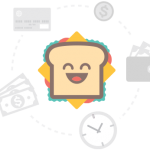James Whitaker is a serial entrepreneur and the founder of CueRide.
The company is an app-based firm “working to ensure drivers receive a fair commission within the rideshare industry.”
Since he was 15 years old, James Whitaker has been working, “quickly learning the value of a dollar and contributing to the world.” He also knew that he “didn’t want to work for anyone else.”
As he grew up, James Whitaker knew that he had the entrepreneurial spirit. He considered “building something of my own and creating a legacy for myself.”
So, James Whitaker first started a landscaping business. And then, after shadowing his mother’s friend, who was a real estate investor, he also went into real estate.
James Whitaker “became interested in helping people purchase real estate and ultimately made my first million at 25.”
When he became an entrepreneur, James Whitaker understood the challenge of “maintaining the focus and drive to sustain your business and those who work for you.”
Despite the challenges, James Whitaker kept going because of his family, and his goal of creating a “bright future for my children.”
James Whitaker believes that entrepreneurship is about “building a legacy that my family can be proud of.” He also believes that his “family is my ultimate drive when it comes to success.”
Check out more interviews with serial entrepreneurs here.
I began working at the age of fifteen, quickly learning the value of a dollar and contributing to the world. James Whitaker, CueRide
Jerome Knyszewski: Thank you so much for joining us in this interview series! Before we dive in, our readers would love to “get to know you” a bit better. Can you tell us a bit about your ‘backstory’ and how you got started?
James Whitaker: I began working at the age of fifteen, quickly learning the value of a dollar and contributing to the world.
I also knew I didn’t want to work for anyone else.
Recognizing I had an entrepreneurial spirit at a young age, I always thought about building something of my own and creating a legacy for myself.
In my early adult life, I started a landscaping business. My father passed away, leaving me his remaining real estate investments, and my mother suggested I use the home’s equity to invest in my own business.
However, something happened before I pulled the trigger on this idea.
My mother’s friend, a real estate loan investor, advised there was more financial opportunity in selling the home attached to the land than landscaping the property.
I shadowed him for a while and eventually started my own business buying and selling real estate.
I became interested in helping people purchase real estate and ultimately made my first million at 25.
Jerome Knyszewski: Can you tell us a story about the hard times that you faced when you first started your journey? Did you ever consider giving up? Where did you get the drive to continue even though things were so hard?
James Whitaker: Entrepreneurship may seem like an easy decision at the beginning, especially if it’s what you set your sights on at a young age.
However, maintaining the focus and drive to sustain your business and those who work for you is difficult but worth it.
Any entrepreneur will tell you that hard times happen frequently, and learning how to navigate those obstacles is ultimately what makes you successful.
One of the most challenging points of my entrepreneurial journey was having enough capital to sustain my business while generating revenue in the early phase.
I believe everyone considers giving up due to an obstacle based on human nature alone.
However, what kept me going during hard times and what keeps me motivated to this day is my family.
My upbringing was not easy, and my goal is to create a bright future for my children. Entrepreneurship, for me, is about building a legacy that my family can be proud of.
My family is my ultimate drive when it comes to success.
Jerome Knyszewski: Can you share a story about the funniest mistake you made when you were first starting? Can you tell us what lessons or ‘takeaways’ you learned from that?
James Whitaker: For the longest time, I believed that as a business owner, I was always right. Whether you are a business owner or you patron a business, many people would find this absurd.
However, I believed I had all of the answers.
Over time, I learned customer feedback provides you with the ability to grow your business and enhance your operations.
Without feedback, you cannot grow in your industry or as a leader.
I believe, subconsciously, I feared criticism. I think it’s something many entrepreneurs fear but shy away from sharing.
My family is my ultimate drive when it comes to success.
Jerome Knyszewski: Based on your experience and success, what are the five most important things one should know in order to lead a company from Good to Great? Please share a story or an example for each.
James Whitaker:
- Priorities -There must be a continued focus on what is relevant and also what is most important to and for your business — currently and in the future.
- Principals — Always ask yourself, “what is our core operating system?” “How does this fit into our business model?”
When you are operating on your core principles, it makes decision making — in any capacity — much more comfortable as a leader.
- Practice — This goes back to creating an environment of excellence through habit in all that you do.
When you operate from excellence, you will create your best work and also receive the best outputs from your team every single time.
- Company Culture — Many business leaders are often so set on perfecting the product or service, they forget about how imperative company culture is to their success.
When company culture is prioritized, excellent customer service, employee retention and a positive bottom line will always follow.
Jerome Knyszewski: Extensive research suggests that “purpose-driven businesses” are more successful in many areas. Can you help articulate for our readers a few reasons why a business should consider becoming a purpose-driven business, or consider having a social impact angle?
James Whitaker: I believe your passion should fuel your business ventures. If more companies operated from a place of passion and with a purpose-driven mindset, every day would feel more rewarding.
Jerome Knyszewski: As you know, “conversion” means to convert a visit into a sale. In your experience, what are the best strategies a business should use to increase conversion rates?
James Whitaker: One of the “strategies” I’ve always practiced is to allow the product to sell itself and never become desperate for the sale. Period.
I believe consistency, reviews and customer experience are proof of social good for any business. James Whitaker
Jerome Knyszewski: Of course, the main way to increase conversion rates is to create a trusted and beloved brand. Can you share a few ways that a business can earn a reputation as a trusted and beloved brand?
James Whitaker: I believe consistency, reviews and customer experience are proof of social good for any business.
Great customer testimonials is the type of feedback; even great messaging can’t compete.
When a brand loyalist, supporter or customer is singing your praises, others interested in your product will show up to watch, listen and buy every time.
To do this, brands must consistently show up (i.e., with great branding, photography, excellent customer service, engagement, etc.) and create a great experience that converts.
Jerome Knyszewski: How can our readers further follow you online?
James Whitaker: You can find my company CueRide on Twitter and Instagram @CueRide.
Jerome Knyszewski: This was very inspiring. Thank you so much for joining us!





